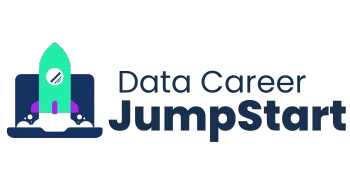
📚 Is The Google Data Analytics Certificate ACTUALLY Worth It? (FULL REVIEW)
If you’re considering or currently taking the Google Data Analytics Certificate as your pathway into data, here's why you rethink your approach!
Why Certificates Don’t Matter in Data Analytics
First things first: certificates themselves don’t get you hired.
Let’s clear the air—no certificate, including the Google Data Analytics Certificate, holds significant weight in the data industry.
I personally have zero data analytics certifications, yet I’ve built a successful career. Why? Because real-world skills and proven problem-solving abilities matter far more than a piece of paper or a PDF certificate.
To back this up, I studied 3,000 data analyst job descriptions and not a single one mentioned any certification as a requirement or even a nice-to-have. This includes not just the Google certificate but also other well-known credentials like Microsoft’s PL300, IBM’s data analytics certificates, Meta’s offerings, and DataCamp courses.
Many people cling to certificates because it feels safe and familiar, like school. It’s a way to avoid rejection by not applying for jobs yet, telling themselves they’ll be ready after completing the certificate.
ALSO, the Google certificate is relatively easy to obtain. Over 2.5 million people have started it, and all it requires is watching videos, answering multiple-choice questions, and completing some quizzes.
While the certificate indicates you’ve completed the course, it says little about your ability to solve real data problems—something that a project portfolio can demonstrate much better.
The Google Data Analytics Course Teaches the WRONG Skills
Let’s break it down:
R Programming: Powerful, but only required 8% of job listings.
Spreadsheets: The course teaches Google Sheets, but in the professional world, Excel dominates. Excel appears 100 times more frequently than Google Sheets on job descriptions. While Google Sheets skills are transferable to Excel, why not learn the tool you’re actually going to use?
Tableau: Google’s choice to teach Tableau is smart. Tableau is the most in-demand data visualization tool in the U.S., used 66% more often than Microsoft’s PowerBI.
SQL: SQL is the gold standard for data querying, and the course covers it extensively. However, the course uses BigQuery, Google’s cloud-based SQL platform, which is not the most popular or intuitive flavor of SQL. It can be difficult to set up and use, which might add frustration for beginners.
Python: Surprisingly, Python is not included in the Google course, even though it appears in over twice as many job descriptions as R. However, Python can be challenging for absolute beginners, so it might not be the best first step either.
In my opinion, a better beginner toolkit would focus on Excel, SQL, and Tableau, while leaving out R and Python for later stages. This combination provides high-demand skills that are easier to learn and more applicable in entry-level roles.
I've talked about this in depth before.
The Course is Slow, Theoretical, and Lacks Hands-On Practice
The Google Data Analytics Certificate is designed to take about six months if you study 10 hours per week—that’s roughly 258 hours.
That's an insane amount of time and effort, and it doesn’t even include job hunting, resume building, interviews, and networking.
It drags on, is too theoretical, and isn't really all that hands-on.
To quantify this (I'm a data analyst after all, right?), I counted how many times students actually execute a SQL query in the entire course. The answer? Just 25 queries over six months—roughly one query per week. In contrast, my own 10-week bootcamp includes 40 hands-on SQL queries, nearly four times as many in a fraction of the time.
No Projects. No Portfolio.
The Google Cert has basically no meaningful projects and portfolio development. After six months, most students are unable to complete a basic data project independently.
Why? Because the course doesn’t require you to build anything substantial from scratch that mimics real-world analytics challenges. Instead, it's theory, guided exercises, and multiple-choice quizzes.
The so-called capstone project is minimal and optional.
Even when the course nudges you to build a portfolio, it mostly points you towards Kaggle, a platform dominated by Python notebooks. This is ironic, since the course doesn’t teach Python at all!!
Make it make sense!
Very Little (if any) Career Support.
Finally, the Google Data Analytics Certificate offers virtually no career support or networking. One of the most underrated elements of a successful career switch is having a community—mentors, peers, instructors—to guide you, provide feedback, and hold you accountable.
The Google course is honestly lonely.
This isolation makes it easy to get discouraged or stuck, and many people who start the course end up giving up before finishing.
Contrast this with structured boot camps or programs that offer live office hours, coaching, networking events, and direct connections to hiring managers. In my own bootcamp, students benefit from weekly live sessions, accountability groups, access to my network, and an alumni community that helps with referrals and job leads.
Doesn't that sound more fun?
It's just a better path. For example, in the Google Cert, they give you two resume templates. One will get you rejected by the ATS the majority of the time because of how it's structured. SMH!
And to top it off, they don't even really talk about applying for jobs at all.
Isn't that...the whole point? To apply and land a job?
So What Should You Do Instead?
The Google Data Analytics Certificate is a start, but it’s not the golden ticket many hope it to be. Certificates alone don’t impress hiring managers in data analytics. If you want to accelerate your learning and job search, focus on the following:
Build a strong portfolio: Work on real-world projects, analyze public datasets, create dashboards, and solve business problems. Your portfolio is your proof of ability.
Learn the right tools: Prioritize Excel, SQL, and Tableau. Consider Python later once you have a solid foundation.
Get hands-on experience: Practice writing queries, building visualizations, and cleaning data regularly to build confidence.
Find mentorship and community: Join cohorts, boot camps, or data communities where you can get support, accountability, and networking opportunities.
Master job search skills: Learn how to craft ATS-friendly resumes, prepare for interviews, and negotiate your offers effectively.
If you want to avoid wasting months of your life on a slow, theoretical course with minimal hands-on practice, no portfolio, and no career support, you owe it to yourself to explore more strategic and practical learning paths.
Remember, your goal isn’t just to get a certificate—it’s to get a job. Focus on what employers truly want: proven skills, real projects, and strong connections. That’s how you’ll break into data analytics in 2025 and beyond.


